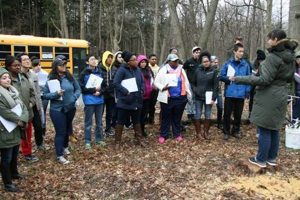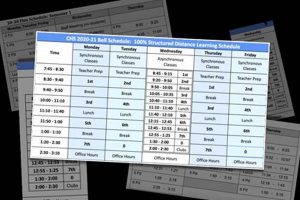A robust high school curriculum strategically designed to prepare students for a nursing career typically includes a strong foundation in science and mathematics. This foundation often comprises courses in biology, chemistry, anatomy, physiology, and algebra, sometimes extending to more advanced subjects like pre-calculus or statistics. Beyond these core subjects, coursework emphasizing communication skills, such as writing and public speaking, is also highly valuable. Electives like psychology and sociology can provide insights into human behavior and social dynamics relevant to the nursing profession.
Solid preparation in high school is invaluable for aspiring nurses. It provides a springboard for success in rigorous nursing programs at the college or university level. Early exposure to relevant scientific concepts, mathematical principles, and communication techniques allows students to enter post-secondary education with a significant advantage. This preparation not only eases the transition to more advanced studies but also cultivates critical thinking skills and a deeper understanding of the healthcare field. Historically, high schools have increasingly recognized the importance of tailored curricula to address specific career paths, with programs focusing on healthcare professions becoming increasingly prevalent to meet the growing demand.
The following sections will delve into specific course recommendations categorized by subject area, offering detailed explanations of their relevance to nursing and insights into how they contribute to a well-rounded pre-nursing educational experience. Additionally, resources and strategies for high school students interested in exploring nursing careers further will be explored.
Tips for High School Course Selection to Prepare for a Nursing Career
Strategic course selection during high school can significantly enhance preparedness for pursuing nursing studies. Careful planning allows students to develop a strong academic foundation and gain valuable skills relevant to the field.
Tip 1: Prioritize Science and Mathematics. A solid foundation in biology, chemistry, and mathematics is crucial. Biology provides essential knowledge of living organisms, while chemistry explains the interactions of matter. Mathematics, particularly algebra, is essential for understanding dosages and other quantitative aspects of healthcare.
Tip 2: Explore Advanced Science Courses. When available, consider enrolling in advanced placement (AP) or honors courses in biology, chemistry, and related subjects. These courses offer greater depth and rigor, providing a competitive edge in college applications and a stronger foundation for future studies.
Tip 3: Develop Strong Communication Skills. Effective communication is paramount in nursing. Focus on honing written and oral communication abilities through English composition, literature, and public speaking courses. Active participation in debate clubs or theater can further enhance these skills.
Tip 4: Consider Psychology and Sociology. Gaining insight into human behavior, social dynamics, and mental health is highly beneficial for aspiring nurses. Psychology and sociology courses can provide valuable perspectives on patient interaction and care.
Tip 5: Seek Opportunities for Practical Experience. Explore opportunities for hands-on experience in healthcare settings, such as volunteering at hospitals, clinics, or nursing homes. Even limited exposure to the healthcare environment can provide valuable insights and confirm career aspirations.
Tip 6: Research Nursing Programs and Prerequisites. Investigate the entrance requirements of various nursing programs at different colleges and universities. Understanding these prerequisites allows for informed course selection and ensures alignment with future academic goals.
Tip 7: Engage with Healthcare Professionals. Connect with nurses or other healthcare professionals to learn firsthand about their experiences and gain valuable insights into the profession. Shadowing or informational interviews can offer a realistic perspective on the demands and rewards of a nursing career.
By following these recommendations, students can develop a robust academic foundation, enhance essential skills, and gain valuable experience to prepare themselves for a successful and rewarding career in nursing. This preparation not only strengthens academic performance but also demonstrates a commitment to the profession.
The subsequent conclusion will summarize the key benefits of strategic high school course selection for aspiring nurses and offer final recommendations for students considering this rewarding career path.
1. Science Courses (Biology, Chemistry)
Mastery of fundamental biological and chemical principles is crucial for prospective nursing students. Biology provides the foundational knowledge of living organisms, their structure, function, and interactions. This understanding is directly applicable to patient care, encompassing areas such as anatomy, physiology, and pathophysiology. Chemistry complements biology by exploring the composition, properties, and reactions of matter. This knowledge is essential for understanding medication administration, drug interactions, and the chemical processes occurring within the human body. For instance, a firm grasp of cellular respiration is vital for comprehending how the body utilizes oxygen and produces energy, while knowledge of chemical reactions aids in understanding how medications are metabolized.
The practical significance of this strong science background extends beyond the classroom and into clinical practice. Nurses routinely apply biological and chemical principles when assessing patient conditions, administering medications, and interpreting laboratory results. Consider a scenario where a patient presents with abnormal blood glucose levels. A nurse’s understanding of metabolic processes, learned through biology and chemistry coursework, allows for informed interpretation of these results and contributes to the development of an appropriate care plan. Similarly, a deep understanding of the circulatory system, gained through biology classes, is essential for accurately measuring blood pressure and assessing cardiovascular health. These practical applications underscore the importance of these subjects in the nursing curriculum.
In summary, a robust foundation in biology and chemistry provides aspiring nurses with the essential scientific knowledge and analytical skills necessary for success in their chosen profession. These courses serve as cornerstones of a comprehensive pre-nursing education, equipping students to navigate the complexities of human health and provide competent patient care. Challenges may arise in the complexity and depth of these subjects, requiring diligent study and effective learning strategies. However, overcoming these challenges builds resilience and reinforces the problem-solving skills essential for effective nursing practice. This rigorous scientific foundation directly correlates with successful progression through nursing programs and ultimately contributes to the delivery of high-quality patient care.
2. Mathematics (Algebra, Statistics)
Mathematical proficiency, particularly in algebra and statistics, is essential for prospective nursing students. These skills underpin numerous aspects of healthcare, from calculating medication dosages and interpreting patient data to understanding research findings and contributing to evidence-based practice. A strong mathematical foundation enables informed decision-making and contributes to patient safety.
- Dosage Calculations
Accurate dosage calculations are critical for safe medication administration. Algebra skills are employed to convert units, determine appropriate dosages based on patient weight or body surface area, and adjust medications based on renal function or other physiological factors. Errors in these calculations can have serious consequences, highlighting the importance of a strong foundation in algebra.
- Data Analysis and Interpretation
Nurses routinely analyze and interpret patient data, including vital signs, laboratory results, and physiological measurements. Statistical concepts, such as mean, median, mode, and standard deviation, are essential for understanding data distributions, identifying trends, and making informed clinical judgments. For instance, recognizing trends in a patient’s vital signs can alert nurses to potential complications or changes in health status.
- Research Literacy and Evidence-Based Practice
Statistical literacy is crucial for evaluating research findings and applying evidence-based practices in nursing. Understanding statistical methods allows nurses to critically assess the validity and reliability of research studies, determine the clinical significance of findings, and incorporate research-based interventions into patient care. This ensures that nursing practice is informed by the best available evidence.
- Resource Allocation and Healthcare Management
Mathematical skills are increasingly relevant in healthcare management and resource allocation. Nurses involved in administrative roles or leadership positions utilize mathematical principles to analyze budgets, manage staffing levels, forecast patient volumes, and make informed decisions regarding resource allocation. These skills contribute to the efficient and effective delivery of healthcare services.
In conclusion, proficiency in algebra and statistics is integral to a comprehensive pre-nursing education. These mathematical skills empower nurses to make accurate calculations, interpret data effectively, and contribute to evidence-based practice, ultimately enhancing patient safety and optimizing healthcare outcomes. The rigorous application of mathematical principles in various nursing contexts underscores the importance of this foundational knowledge in preparing future generations of healthcare professionals.
3. Health Science Electives
Health science electives in high school provide invaluable introductory exposure to the healthcare field, serving as a crucial component of pre-nursing education. These courses bridge the gap between theoretical science concepts and practical application in healthcare settings, offering students a preliminary glimpse into the realities of the profession. This early exposure can solidify career aspirations, cultivate essential skills, and provide a competitive edge in future nursing applications. For instance, a course in medical terminology equips students with the language of healthcare, facilitating effective communication in clinical settings. Similarly, introductory courses in Certified Nursing Assistant (CNA) training provide foundational skills in patient care, including basic hygiene, mobility assistance, and vital sign monitoring. These practical experiences foster empathy, build confidence, and instill a sense of responsibility qualities essential for effective nursing practice.
The practical significance of these electives becomes evident when considering their impact on future learning and career trajectories. Students who complete health science electives often transition more seamlessly into college-level nursing programs. Their prior exposure to medical terminology reduces the learning curve in advanced coursework, allowing them to focus on more complex concepts. Moreover, practical experience gained through CNA training or other healthcare-related electives can provide a distinct advantage in competitive application processes for nursing schools and future employment opportunities. For example, a student with prior CNA experience may demonstrate greater competency and confidence during clinical rotations, positively influencing their performance evaluations and career prospects. Furthermore, these electives can inspire students to explore different specializations within nursing, such as geriatric care, emergency medicine, or pediatrics, fostering a deeper understanding of the diverse career paths available within the field.
In summary, health science electives play a pivotal role in shaping aspiring nurses’ educational journeys and career paths. These courses offer a unique opportunity to gain practical experience, cultivate essential skills, and solidify career aspirations before embarking on formal nursing education. While access to such electives may vary across high schools, seeking out opportunities for healthcare-related experiences, such as volunteering at local hospitals or clinics, can provide similar benefits. This proactive engagement demonstrates a commitment to the profession and provides valuable insights into the multifaceted nature of healthcare, ultimately contributing to a more informed and prepared future nursing workforce.
4. Advanced Placement (AP) Courses
Advanced Placement (AP) courses offer high school students the opportunity to engage with college-level curricula, providing a distinct advantage for those aspiring to pursue nursing. Specifically, AP courses in biology, chemistry, and calculus strengthen the foundational knowledge required for success in demanding undergraduate nursing programs. These rigorous courses delve deeper into scientific principles and mathematical concepts, fostering critical thinking and problem-solving skills essential for navigating complex healthcare scenarios. Successful completion of AP exams often translates to college credit, allowing students to bypass introductory courses, potentially accelerating their academic progress and reducing educational costs. This acceleration can free up time for students to pursue additional learning opportunities, such as research projects or specialized internships within the healthcare field.
The practical significance of AP coursework extends beyond academic preparation. The demanding nature of these courses cultivates discipline, time management skills, and a strong work ethicattributes highly valued in the nursing profession. For example, a student who excels in AP Biology demonstrates not only a deep understanding of biological concepts but also the ability to manage complex information, synthesize data, and apply critical thinkingskills directly transferable to the analysis of patient symptoms, interpretation of laboratory results, and development of effective care plans. Furthermore, the experience of preparing for and taking AP exams enhances students’ test-taking skills and reduces anxiety associated with high-stakes assessments, contributing to greater confidence and preparedness for future licensing examinations required for nursing practice.
In summary, AP courses provide a robust academic foundation, cultivate essential skills, and offer potential advantages in college admissions and academic progression. While the rigor of these courses presents challenges, the benefits they confer for aspiring nurses are substantial. Students who successfully navigate the demands of AP coursework demonstrate a commitment to academic excellence and a strong foundation for future success in the challenging yet rewarding field of nursing. This strong preparation not only benefits individual students but also contributes to a more highly qualified and competent nursing workforce, ultimately enhancing the quality of patient care.
5. Communication Skills (English, Speech)
Effective communication forms the cornerstone of competent nursing practice. Strong communication skills, cultivated through high school English and speech courses, are essential for conveying information accurately, building rapport with patients and their families, and collaborating effectively within interdisciplinary healthcare teams. These skills encompass clear and concise written communication, active listening, empathetic verbal exchange, and non-verbal communication cues. Deficiencies in communication can lead to misunderstandings, medical errors, and diminished patient trust. Conversely, proficient communication fosters positive patient outcomes, enhances teamwork, and contributes to a safer and more efficient healthcare environment.
Consider the practical application of these skills in a clinical setting. A nurse must effectively communicate complex medical information to patients and their families, often during stressful or emotionally charged situations. This requires not only clarity and accuracy but also sensitivity and empathy. Similarly, effective collaboration with physicians, therapists, and other healthcare professionals hinges on clear and concise communication, both written and verbal. For example, a nurse must accurately document patient observations, relay critical information during shift changes, and advocate for patient needs during interdisciplinary team meetings. Furthermore, effective communication plays a vital role in conflict resolution, patient education, and the provision of emotional support, underscoring its multifaceted importance in nursing practice.
In conclusion, robust communication skills are integral to effective nursing practice and should be prioritized within high school curricula. Courses in English composition, literature analysis, and public speaking provide a foundation for clear and concise communication, while opportunities for active listening and empathetic dialogue further enhance these skills. The cultivation of these competencies not only prepares students for the rigors of nursing programs but also equips them with the essential tools to provide compassionate, patient-centered care throughout their careers. Addressing communication apprehension and tailoring communication strategies to diverse patient populations represent ongoing challenges that require continuous learning and professional development within the nursing field. This emphasis on communication reinforces its pivotal role in fostering positive patient outcomes, promoting interprofessional collaboration, and ensuring the delivery of safe and effective healthcare services.
6. Social Sciences (Psychology, Sociology)
Psychology and sociology provide crucial insights into human behavior, social dynamics, and the factors that influence health and well-being, making them valuable additions to a pre-nursing curriculum. Psychology explores individual behavior, mental processes, and emotional states, offering frameworks for understanding patient motivations, coping mechanisms, and responses to illness. Sociology examines social structures, cultural norms, and group interactions, providing context for understanding how social determinants of health, such as socioeconomic status, access to resources, and cultural beliefs, can impact health outcomes. This combined understanding allows aspiring nurses to develop a more holistic and patient-centered approach to care. For instance, recognizing the psychological impact of a chronic illness can inform communication strategies and support interventions. Similarly, understanding the social factors that contribute to health disparities enables nurses to advocate for equitable access to care and develop culturally sensitive interventions.
Practical applications of this knowledge are numerous. A nurse working with a patient struggling with addiction can utilize psychological principles to understand the underlying causes of the addiction and develop strategies for behavior modification. Understanding family dynamics and social support systems can be crucial when providing care to a patient with a terminal illness. Recognizing the impact of cultural beliefs on health practices can enable a nurse to tailor health education materials and ensure effective communication with patients from diverse backgrounds. Furthermore, sociological perspectives can inform community health initiatives, addressing social determinants of health and promoting health equity within vulnerable populations. These examples highlight the practical significance of social science knowledge in shaping effective nursing interventions and improving patient outcomes.
In summary, incorporating psychology and sociology into high school curricula provides prospective nursing students with valuable insights into the human condition and the social factors that influence health. This knowledge enhances communication skills, promotes culturally sensitive care, and equips future nurses to address the complex needs of diverse patient populations. Challenges remain in integrating social science perspectives into already demanding nursing curricula and bridging the gap between theory and practice. However, the benefits of this interdisciplinary approach are undeniable, contributing to a more comprehensive and patient-centered approach to healthcare. This understanding aligns with the broader movement toward holistic care, recognizing the interconnectedness of physical, mental, and social well-being in achieving optimal health outcomes.
7. Extracurricular Activities (Volunteering)
Extracurricular activities, particularly those involving volunteer work in healthcare settings, offer invaluable practical experience and enrich the academic foundation built through coursework. These experiences provide aspiring nurses with real-world insights into the daily realities of the profession, complementing theoretical knowledge gained in the classroom. Volunteering allows students to explore different healthcare settings, interact with patients and professionals, and develop a deeper understanding of the multifaceted nature of nursing. This practical exposure can solidify career aspirations, clarify areas of interest within nursing, and provide a competitive edge in future applications to nursing programs.
- Exposure to Healthcare Environments
Volunteering in hospitals, clinics, or nursing homes provides firsthand exposure to the healthcare environment. Observing patient interactions, witnessing medical procedures (within appropriate boundaries), and experiencing the dynamics of a healthcare team offer insights that cannot be replicated in a classroom setting. This exposure demystifies the healthcare environment and fosters a sense of familiarity and comfort, easing the transition into clinical settings during nursing education.
- Development of Soft Skills
Volunteering cultivates essential soft skills highly valued in nursing, including empathy, compassion, communication, teamwork, and problem-solving. Interacting with patients, providing comfort and support, and working collaboratively within a team fosters these skills organically, supplementing academic learning. For instance, assisting patients with basic needs or providing emotional support during challenging times cultivates empathy and strengthens communication skills. These experiences underscore the human element of healthcare, reinforcing the importance of patient-centered care.
- Confirmation of Career Aspirations
Practical experience gained through volunteering can solidify career aspirations and provide a deeper understanding of the specific demands and rewards of nursing. Witnessing the daily realities of the profession, both the challenges and the fulfilling aspects, allows students to make informed decisions about their career paths. This experience can affirm their choice to pursue nursing or, alternatively, guide them toward alternative career paths within healthcare that better align with their interests and aptitudes.
- Enhanced Application Profiles
Volunteering demonstrates a commitment to the healthcare field and a genuine interest in serving others, strengthening applications to nursing programs and future employment opportunities. Admissions committees and employers value candidates who demonstrate initiative, dedication, and a passion for healthcare. Volunteer experience, particularly in relevant settings, showcases these qualities and provides concrete examples of a student’s commitment to the nursing profession.
In conclusion, extracurricular activities, especially volunteer work in healthcare settings, play a crucial role in preparing aspiring nurses for the challenges and rewards of the profession. These experiences complement academic preparation, providing practical insights, developing essential soft skills, confirming career aspirations, and enhancing application profiles. While academic coursework provides the theoretical foundation, extracurricular activities bridge the gap between theory and practice, cultivating well-rounded individuals ready to embark on a successful and fulfilling career in nursing.
Frequently Asked Questions about High School Preparation for Nursing
This section addresses common inquiries regarding high school course selection and preparation for a nursing career. The provided information aims to clarify potential uncertainties and guide students toward informed academic planning.
Question 1: Are there specific high school courses essential for admission to nursing programs?
While specific requirements vary among institutions, a strong foundation in science and mathematics is universally recommended. Biology, chemistry, and algebra are typically considered prerequisites, while advanced courses like anatomy, physiology, and pre-calculus can provide a competitive advantage.
Question 2: How important are communication skills for a nursing career, and how can these be developed in high school?
Effective communication is paramount in nursing. High school courses in English composition, literature, and public speaking hone essential communication skills. Active participation in debate clubs, theater, or other extracurricular activities that emphasize communication can further enhance these abilities.
Question 3: What are the benefits of taking Advanced Placement (AP) courses related to science and math?
AP courses offer rigorous college-level curricula, potentially leading to college credit and advanced placement. This can accelerate academic progress, reduce educational costs, and demonstrate a commitment to academic excellence, strengthening nursing school applications.
Question 4: How can students gain practical healthcare experience during high school?
Volunteering at hospitals, clinics, nursing homes, or other healthcare facilities provides invaluable practical experience. Opportunities like Certified Nursing Assistant (CNA) training offer foundational skills and enhance understanding of patient care.
Question 5: What are the benefits of taking social science courses like psychology and sociology for aspiring nurses?
Psychology and sociology provide insights into human behavior, social dynamics, and the factors influencing health and well-being. This knowledge enhances communication, promotes culturally sensitive care, and contributes to a holistic understanding of patients.
Question 6: How can students determine the specific admission requirements of different nursing programs?
Researching the websites of target nursing programs and contacting admissions offices directly can provide detailed information on prerequisite courses, GPA requirements, and other admission criteria. Attending college fairs and virtual information sessions can also offer valuable insights.
Strategic academic planning in high school sets the stage for a successful transition into nursing education and beyond. A well-rounded curriculum encompassing rigorous coursework, practical experience, and strong communication skills provides a solid foundation for a rewarding nursing career.
The following section will offer a comprehensive list of resources for aspiring nurses, including professional organizations, scholarship opportunities, and mentorship programs.
Conclusion
Strategic academic preparation during high school is paramount for students aspiring to pursue nursing careers. A rigorous curriculum encompassing foundational science courses (biology, chemistry), essential mathematics (algebra, statistics), and supplementary studies in communication (English, speech) and social sciences (psychology, sociology) builds a robust framework for future nursing education. Practical experience gained through health science electives, advanced placement courses, and extracurricular activities like volunteering further strengthens this foundation, providing real-world insights and fostering essential skills such as empathy, communication, and teamwork. These combined experiences cultivate well-rounded individuals equipped to navigate the complexities of healthcare and deliver compassionate, patient-centered care.
The demanding yet rewarding nature of nursing necessitates diligent preparation and a commitment to lifelong learning. A well-defined academic pathway, initiated in high school, empowers aspiring nurses to meet these demands and contribute meaningfully to the healthcare field. This preparation not only benefits individual career trajectories but also strengthens the future of nursing, ensuring a highly skilled and compassionate workforce dedicated to improving patient outcomes and advancing the quality of healthcare delivery.







